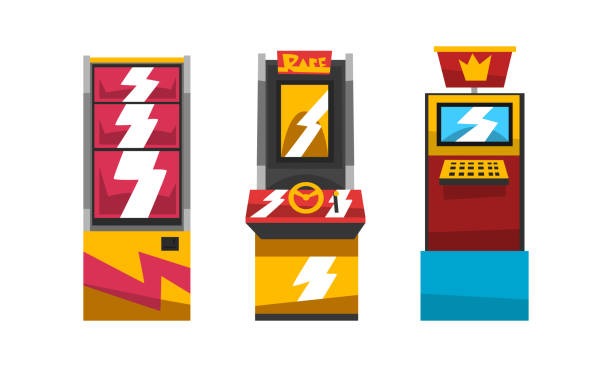Comprehending Variance In Casino Games
of gaming, variance is the anticipated departure from the average result of a game. It is closely linked to volatility, which explains the frequency and extent of payouts' variations. Low volatility games appeal to casual gamers who like long gaming sessions since they provide consistent but lesser wins. On the other hand, high-variance games draw high-risk players looking for large jackpots and may have long streaks of losses before paying significant awards.
In slot machines, where variance controls payout frequencies and sizes, it is very important. Small rewards sometimes awarded by a low-variance slot help to keep players active for extended lengths of time. Conversely, high-variance slots could have less winning spins but pay big prizes when they do strike. Though it entails running many losing streaks, this design motivates players to keep spinning in hopes of striking a life-changing win.
Variance is also included into table games such as blackjack, roulette, and baccarat. For roulette, for instance, betting on a single number has a high variance even if the payout is much higher and the chances of winning are low. Betting on red or black has less variance meanwhile since the likelihood of winning is near to 50%, which causes more frequent but smaller payouts. To guarantee an appealing mix of risk and reward while preserving their built-in house edge, casinos deliberately combine these variance levels.
House Edge And Variance
Variance's Psychological Effects On Players
Variance is not only a mathematical instrument; it also has great influence in player psychology. Variance adds uncertainty and excitement that enhances the whole gaming experience and makes games more interesting and motivator for players to keep betting. Casinos use this psychological feature to create games that keep a fine balance between winnings and losses, therefore assuring that players stay hopeful and keep on playing.
Especially high-variance games give the impression of possible wealth. Those who have sporadic large winnings are more likely to keep playing in order to try to match their success. Known as the "gambler's fallacy," this phenomena causes players even after protracted losses to feel that a large gain is waiting around the corner. Casinos take advantage of this cognitive bias by arranging https://portlandasiancuisine.com/ games such that players have just enough winnings to keep them interested and so ensure that the house stays profitable.
Particularly common in slot machines, near-misses are another psychological ploy. When a player almost misses a jackpot or a large win—such as hitting two out of three needed symbols on a payline—a near-miss results. Near-misses have been found to trigger the reward system in the brain in a similar manner to real wins, which increases players' likelihood of ongoing play. Near-misses included into high-variance games help casinos improve player retention and inspire longer gaming sessions.
Variance And Player Bankroll Control
Variance influences bankroll management by players, hence casinos create their games to maximize this. Low-variance games let players extend their playing time with lower bets; high-variance games need a bigger bankroll to withstand possible losing streaks. Many casual gamblers overlook volatility in their financial management, which causes them to pursue losses or keep playing above their intended budget.
Casinos take advantage of this habit by providing games with varying degrees of volatility so that players with all bankroll levels may engage. While low-variance games give frequent but lower rewards, budget-conscious players choose high-variance games with great jackpot potential. Customizing various risk tolerances helps casinos increase player involvement and income.
How Casinos Change Variance To Get Maximum Profit
To keep a lucrative equilibrium, casinos carefully limit variance degrees. Working with casino operators, game designers help to adjust variance settings so that games are both profitable for the house and interesting for players. This is accomplished by means of algorithms that ascertain payout frequencies and sizes, therefore maintaining the general consistency of casino profits.
Design of bonus rounds and special features is one method casinos modify volatility. Numerous contemporary slot machines have cascading reels, expanding wilds, and free spin bonuses all of which affect the unpredictability of the game. These elements guarantee that the game stays profitable for the casino even while they give the impression of more winning possibilities.
Variance also helps casinos arrange table game payouts. For blackjack, for example, side bets like "Perfect Pairs" or "21+3" feature great variation and a notable house edge, thereby providing the possibility for large gains but yet keeping the casino profitable. Offering side bets and progressive jackpots with more variation, casinos inspire riskier behavior that over time results in more income.





